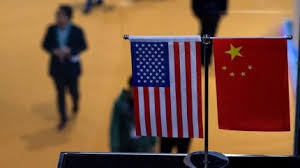China requests WTO to establish panel regarding dispute over U.S. Inflation Reduction Act

Beijing: China has requested the World Trade Organization (WTO) to set up an expert panel regarding new energy vehicle (NEV) subsidies under the U.S. Inflation Reduction Act (IRA).
To safeguard the rights and interests of its NEV industry, China filed on March 26 a complaint at the WTO dispute settlement mechanism over U.S. subsidies for NEVs. However, the U.S. side failed to reach a solution with China through consultations, which is the reason why China has advanced the case, said a spokesperson for the Ministry of Commerce.
China’s NEV industry has made important contributions to the global efforts in green energy transition and responses to climate change, the spokesperson said when addressing media inquiries.

The IRA takes the use of products from specific regions such as the United States as the prerequisite for subsidies, excludes products from WTO members including China, artificially sets trade barriers, and pushes up the cost of green energy transition, said the spokesperson.
No matter how well-packaged or beautified, the subsidies involved are discriminatory and protectionist in nature, and violate WTO rules.
China is determined to advance the proceedings and take concrete actions to uphold the authority and effectiveness of the multilateral trading system with the WTO at its core and safeguard the joint efforts of the world to address climate change.
China respects WTO members’ implementation of industrial subsidies in accordance with WTO rules and in support of green energy transition and economic and social development, said the spokesperson.
“We urge the U.S. side to abide by WTO rules and stop abusing its industrial policies to undermine international cooperation on climate change,” the spokesperson said.
According to WTO’s rules on dispute settlement, if the consultations fail to settle a dispute within 60 days after the date of receipt of the request for consultations, the complaining party may request the establishment of a panel.
“China’s move is a significant step to accelerate the litigation process against the United States over its IRA, and it warrants close attention,” said Ji Wenhua, a law professor with the University of International Business and Economics in Beijing, China’s capital.
Ji said the U.S. measures in question essentially constitute import substitution subsidies, a subsidy that is contingent upon the use of domestic over imported goods.
The IRA’s introduction and implementation rules have severely disrupted the global NEV industry chain and supply chain, increased the cost of energy transition, and damaged the fair competitive environment. Furthermore, it has challenged the authority of the multilateral trading system, Ji said.
China’s advancement of the litigation process against the U.S. not only demonstrates its firm stance in upholding the multilateral trading system but also provides an opportunity for other members to express concerns over related issues and jointly defend international economic and trade rules, Ji said.
After the expert panel is established, it will conduct work according to the litigation procedure, review the facts and legal issues involved in the case, and make a ruling.
Based on current information, even if the U.S. attempts to justify its actions as a measure to address climate change, it is unlikely to comply with WTO exception rules, and cannot alter the nature of its violation of WTO rules, Ji said.





